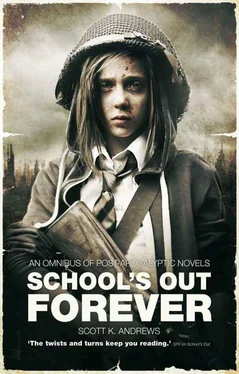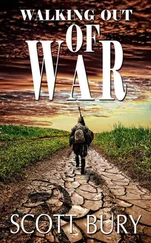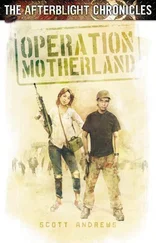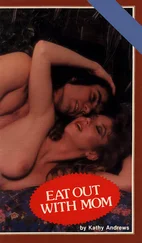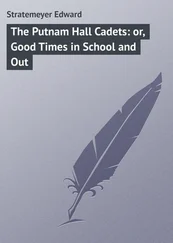“My name is Lee Keegan,” I shouted. “It’s my sixteenth birthday today, and I’m English. I flew here to find my dad, a Sergeant in the British Army, but my plane crashed and these guys found me. If anyone sees this, please let Jane Crowther know what happened to me. You can find her at Groombridge Place, in Kent, southern England. It’s a school now. Tell her I’m sorry.”
The guy with the knife punched me hard in the side of the head to shut me up. He finished his little speech and then there was silence, except for the soft whirr of tiny motors.
I stared straight into the camera lens, tears streaming down my face. I clenched my jaw, tried to look defiant. I probably looked like what I was: a weeping, terrified child.
I felt cold, sharp metal at my throat.
Then the guy behind the camera stood up straight, unwrapped his face and took off his jacket, revealing a t-shirt that read ‘Code Monkey like you!’
“Hang on,” he said. “Did you say your name was Keegan?”
And that’s how I met Tariq.

CHAPTER TWO
I DIDN’T FOLLOW the war in Iraq as closely as I should have.
You’d think that, with my dad on the front line, I’d have been watching and reading everything I could. But there was never any good news. It was all doom and gloom; insurgents, roadside bombs and body counts. It gave me nightmares to think of my dad in the middle of all that. So I stopped reading, listening and watching. I didn’t want to know.
I knew the general details — Dad was in Basra, a coastal town important to oil supplies; things there weren’t as bad as they were further north, where the Americans were in charge; the British troops didn’t have the right equipment, or enough equipment, or any equipment at all, depending upon whether you watched the BBC, Sky News or Al Jazeera.
The only thing I knew for sure was that he was somewhere dangerous and there were people who wanted to kill him. Beyond that, I didn’t ask.
But then, as Mum pointed out, that was his job. He was a soldier. He put himself in harm’s way to pay for our food and clothes, the roof over our heads and the education that would ensure I never had to risk my life the way he did.
I knew that her family paid for my schooling, not Dad, but I understood what she meant, so I just nodded. She knew how I felt, anyway; she was the daughter of a military man herself.
“JOHN KEEGAN’S SON?”
He knew my dad. Oh, God, maybe he’d already sat in this chair. Maybe that was his blood on the floor. My eyes went wide and I couldn’t speak.
The young man stepped out from behind the camera. “Answer the question will you. Oh shit, he’s going to…”
I leaned forward and threw up all over his sneakers. I retched and retched until I was dry heaving, snot and tears and puke sliming my face. He jumped backwards, but it was too late.
“Bloody hell, man,” he said, grimacing at his vomit-coated sneakers. “Do you know how hard it is to get Chuck Jones out here? Fuck.”
The guy with the knife laughed and said something to him in Arabic (is that what they spoke here? Or was it Iraqi? I’m ashamed to admit I didn’t know). Sneaker man flipped him the bird, annoyed and sarcastic.
I sat back in the chair, feeling about as wretched and pathetic as it’s possible to feel. I couldn’t think of anything to say. My mind just kept replaying the image of my father sitting here, straining at his bonds as his throat was cut.
Sneaker man stepped forward, avoiding the puddle of puke. He reached into the back pocket of his jeans and pulled out a photo, which he held in front of me.
“My name is Tariq,” he said. “Please, is this your father?”
It was Dad, in desert combats, smiling at the camera, holding a bottle of coke.
I nodded.
I wanted to scream “Where did you get that? What have you done with him?” but experience back home taught me that people who enjoy slitting throats don’t normally feel the need to explain themselves.
“Shit!” he said. “I thought you were one of the Yanks.” Tariq shoved the knife man aside, grabbing his blade as he did so. He knelt down and began sawing at the rope that bound my wrists.
“If I’d known you were John’s son, I’d never have done this.”
The rope gave way and my hands were free. He shuffled around the front and began working on the rope that bound my feet.
“It’s not like we were actually going to kill you. It’s just a trick we use to make them talk. They think we’re all Islamist nutters, so we play up to it. Works a treat.”
Where the hell did his guy learn his English?
My feet came free and I sprang up, reached behind me and grabbed the chair with my good arm. In a moment I was standing in the corner, chair held up in front of me like a lion tamer.
“Honest, we weren’t going to hurt you,” he said, still crouching on the floor, discarded rope all around him. Then he rose to his feet, dropped the knife to the floor and kicked it over to me.
“We were just going to shit you up and make you talk.”
“About what?”
He laughed. “You’re going to love this.”
“Try me.”
“Well, we thought you could tell us where your father is.”
Before I could answer, a young woman ran in. She was also wearing jeans and a t-shirt. What kind of radical Islamists were these? She spoke to Tariq quietly and with urgency, he replied briefly, then she ran from the room. Tariq reached around to the back of his trousers and pulled out an automatic, chambering a round. Another rush of adrenaline and fear; was he just going to shoot me?
“Your arrival attracted attention,” he said. “We have to move. I do not have time to explain exactly what is happening here, but we are allies, you and I, and should be friends.”
My disbelief must have been plain to see, because he sighed, stood up, ran his fingers through his thick black hair and said: “Yes, I wouldn’t believe me either. Okay, listen to me, Lee. We have to get away from this building quickly and quietly. If you make a noise or shout for help, then you will be killed. Do you understand? And later, when we are safe, I will explain everything and we will laugh about this.”
“Right,” I said. “If you say so.”
He shook his head wearily and threw me the cloth that had bound his face. “Clean yourself.”
I used my good arm to wipe my face clean. I finished with the cloth and dropped it to the floor. Jesus, I ached everywhere.
“We should fix your arm.” Tariq reached forward and grabbed my useless limb. “Ready?” I nodded. “Don’t scream.”
He lifted, twisted and pushed, all at once. I felt the bone rotate and then snap back into its socket. I grunted, and my vision clouded for a moment, but I managed not to scream or pass out. He let go and I lifted my arm up. I could use it again, but it hurt like hell.
“Toseef is going to lead, you will go after him, I will follow you. Please, I beg you, don’t do anything stupid. If you do, we will all die.”
Then we were moving. We left that awful room and entered a living area with doorless frames and open windows. The girl was standing by the main door, rifle in hand, scanning the street outside. My three captors shared an urgent, whispered conference. It seemed the girl wanted to go out the front door and down the road; Tariq disagreed. Eventually he ended the discussion with a curt word of command, and we climbed out one of the side windows into a narrow, dusty alleyway that ran behind the houses on this street.
The sky was deep blue, not a cloud in sight, and the air was heavy and wet. I had expected Iraq to be dry, but Basra was a coastal town, humid and damp. It smelt different, the sandy tang of desert mixed with a dash of salt air from the sea. And something else, a hint of something thick and cloying; I would later learn that it was the smell of burning oil. As soon as I stepped out into that glaring sun I began sweating from every pore all at once. My t-shirt was patched with sweat before we’d even gone a hundred metres. I needed water. A whole great bathful, preferably, to wallow in for a week.
Читать дальше
